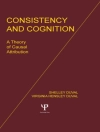This revision of an important and path-breaking work holds to its central argument that troubled young people can develop self-worth, significance, dignity, and responsibility only through commitment to the positive values of helping and caring for others.
An enlarged and revised edition of the authors’ pioneering work on building positive youth culture, Positive Peer Culture retains the practical orientation that made the original attractive to teachers and youth workers, while adding new material on positive peer culture (PPC) in schools and community settings, research on PPC, and guidelines for maintaining program effectiveness and quality. Concepts of positive peer culture have been applied in a wide variety of educational and treatment settings including public and alternative schools, group homes, and residential centers. Vorrath and Brendtro describe specific procedures for getting youth ‘hooked on helping’ through peer counseling groups, and for generalizing caring behavior beyond the school or treatment environment through community-based service learning projects.
The authors contend that the young people who populate our nation’s schools are in desperate need of an antidote to the narcissism, malaise and antisocial life-styles that have become so prevalent, and that this book seeks to provide a way of meeting their increasing cry to be used in some demanding cause. On publication of the first edition, Richard P. Barth, Frank A. Daniels Professor for Human Services Information Policy, School of Social Work, University of North Carolina at Chapel Hill called Positive Peer Culture ‘a significant contribution to the field.’
Despre autor
Harry H. Vorrath is both the designer and developer of the Positive Peer Culture treatment model. He has been president of the Center for Group Studies in Shenandoah, Virginia, and directed the Newgate Project at the Minnesota Reformatory, Saint Cloud while he was associate professor at the University of Minnesota.












